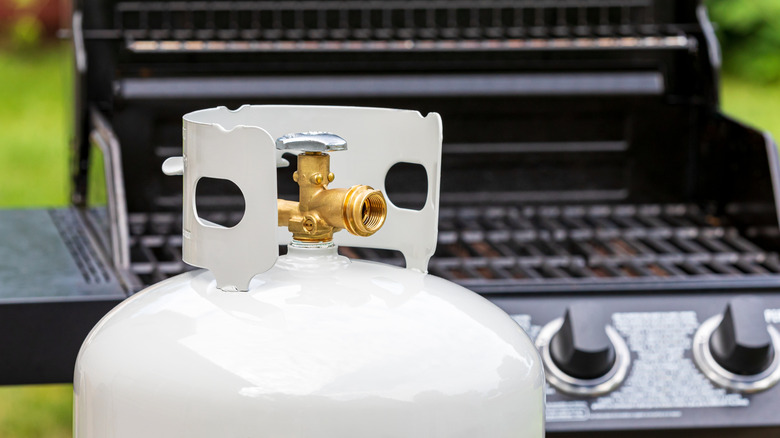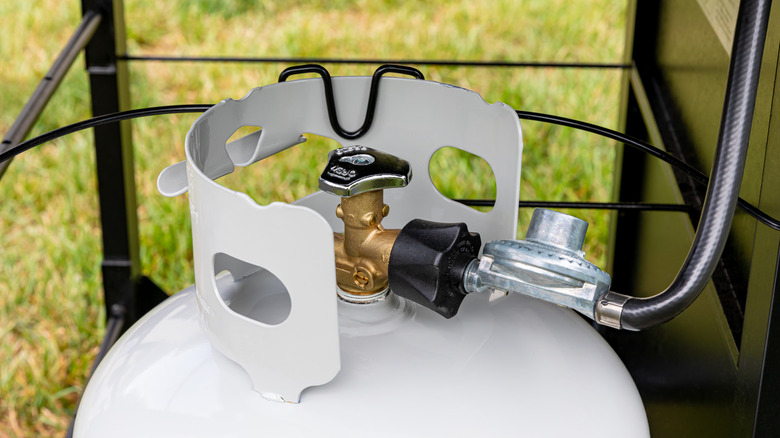Before Grilling This Season, Check Your Propane Levels With A Cup Of Water
With spring here and summer just around the corner, many of us are thinking about removing the cover from our grill and firing it up. Before you do, however, it is a good idea to check how much propane you've got left in your tank. After all, you don't want the first grilling session of the season to be cut short due to a lack of fuel.
To gain a quick approximation of the propane level, all you have to do is boil a cup of water and pour it over your propane tank. Run your hand down the metal, stopping at the point where the metal turns from hot to cold. This is where the propane fills up to. If the tank is only about 20% full, you should get it refilled before you start grilling for the season. (Don't be tempted to buy charcoal – gas is better for grilling.)
As mentioned, the boiling water trick only gives you an approximation of the propane level. For a more accurate reading, you have to invest in a propane gauge or monitor. Both of these tools will give you a much clearer understanding of your propane level, ensuring you never run low.
Other things to check before you start grilling
There are a few other things you should check before you turn on your grill for the first time. Most importantly, you should check both the grill and the propane tank for any signs of damage or degradation, including rust. While a rusty grill can most definitely be saved with a little bit of work, you should never use a rusty propane tank. This is because a rusty tank is weak, meaning it is more susceptible to leaking.
You should also check the gas lines before you start cooking. Look to see if the material is damaged or perished. If it is, replace the lines. You should also check to see if the connection is leaking. To do this, pour a mixture of water and washing-up liquid onto the connection and turn on the gas (but don't light the grill). If the liquid bubbles, the connection is leaking and you should not cook until you've tightened the connection or replaced the hose.
Once you're sure that your grill is safe to use, it's time to clean it. Remove any and all debris from the grill and clean each component thoroughly. Depending on how well you maintain your grill, you may need to scrape down the grates and leave them to soak in a mixture of vinegar and baking soda. (Failing that, you can always clean your grill using half an onion.) Once it's clean, you are ready to cook. Just be sure to keep an eye on your propane levels throughout the year and remember, don't be intimidated; grilling is the easiest type of cooking, after all.

